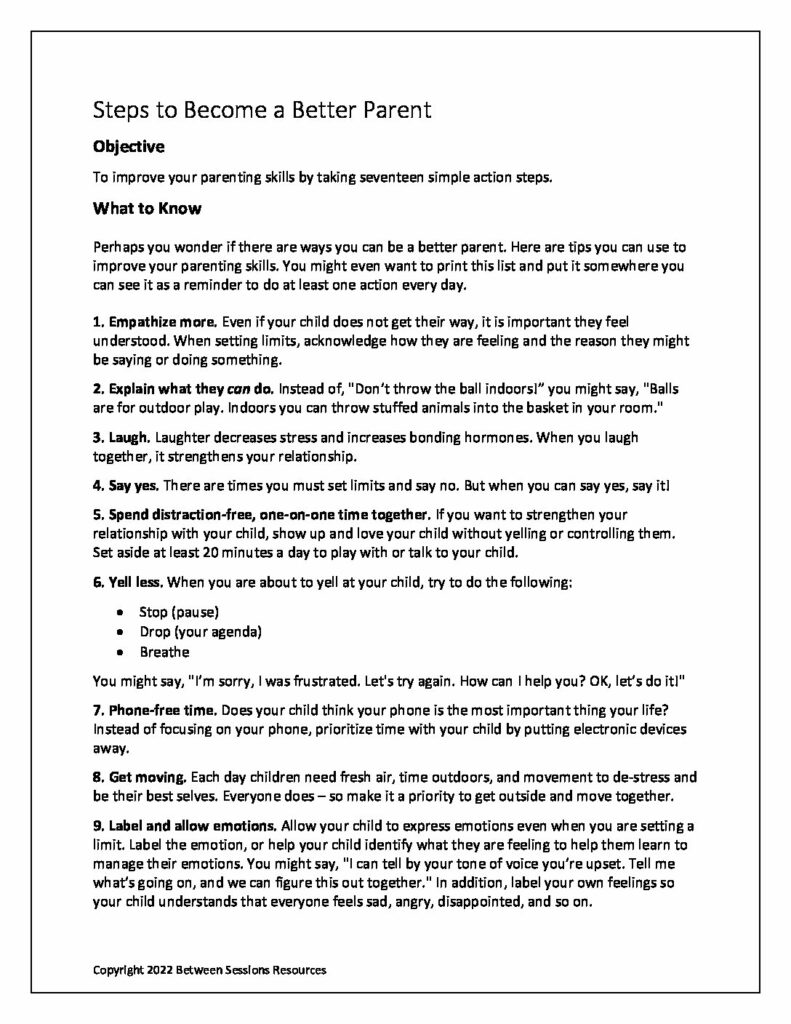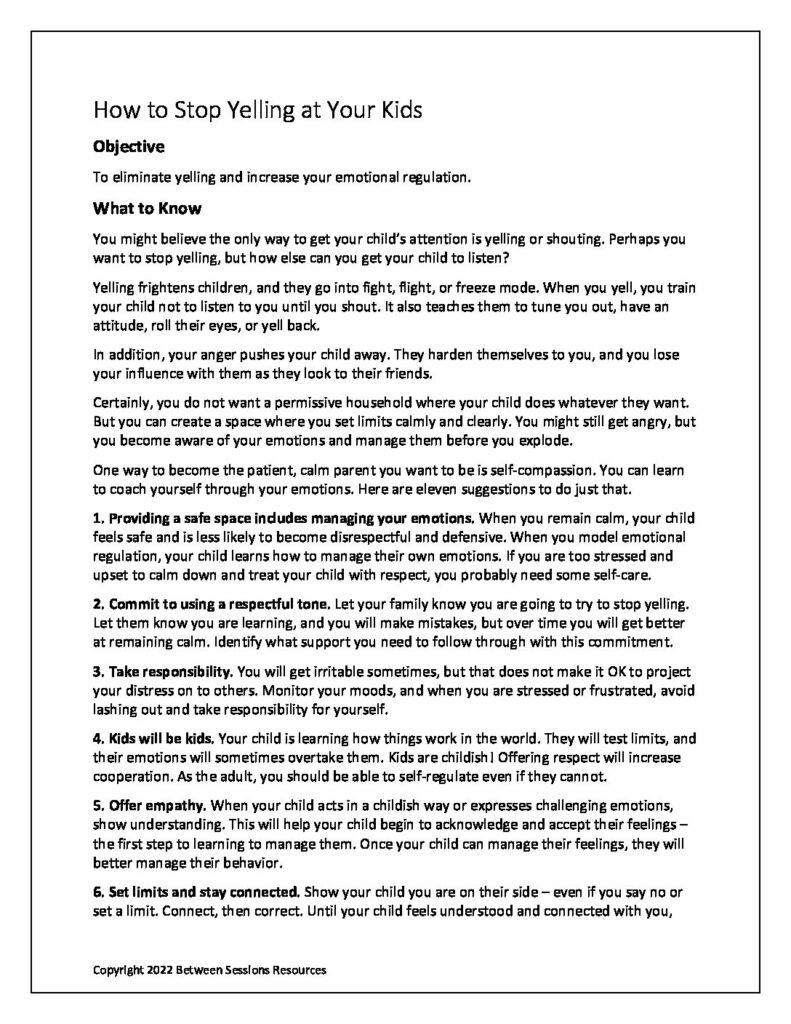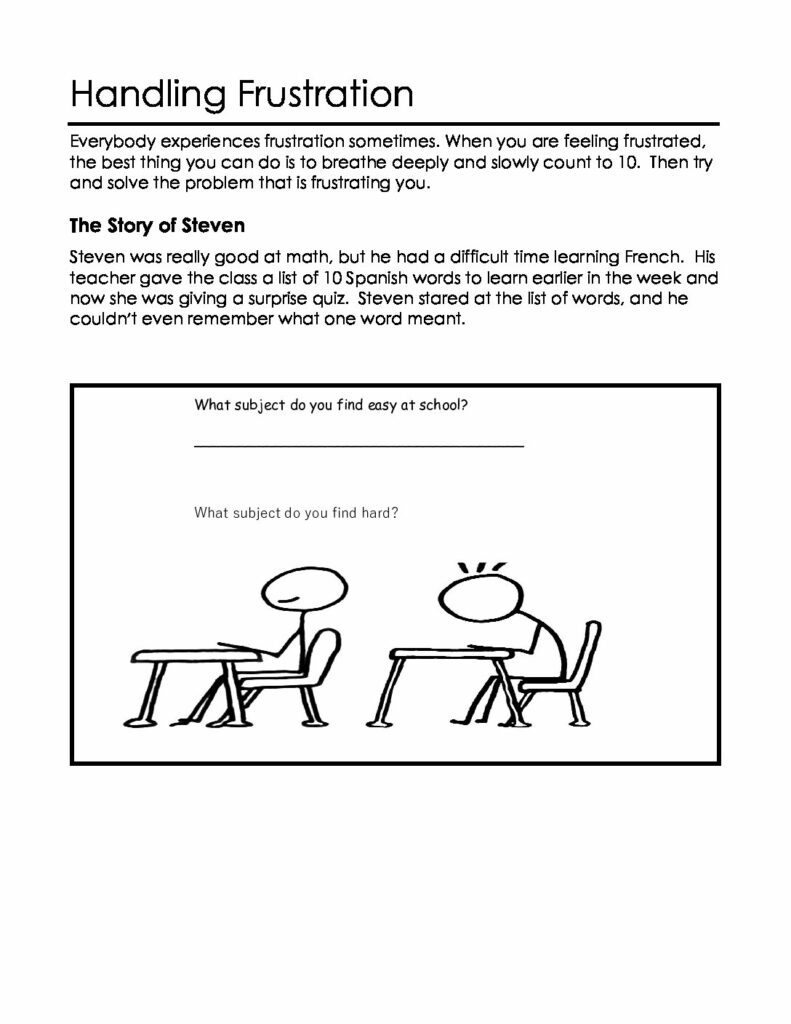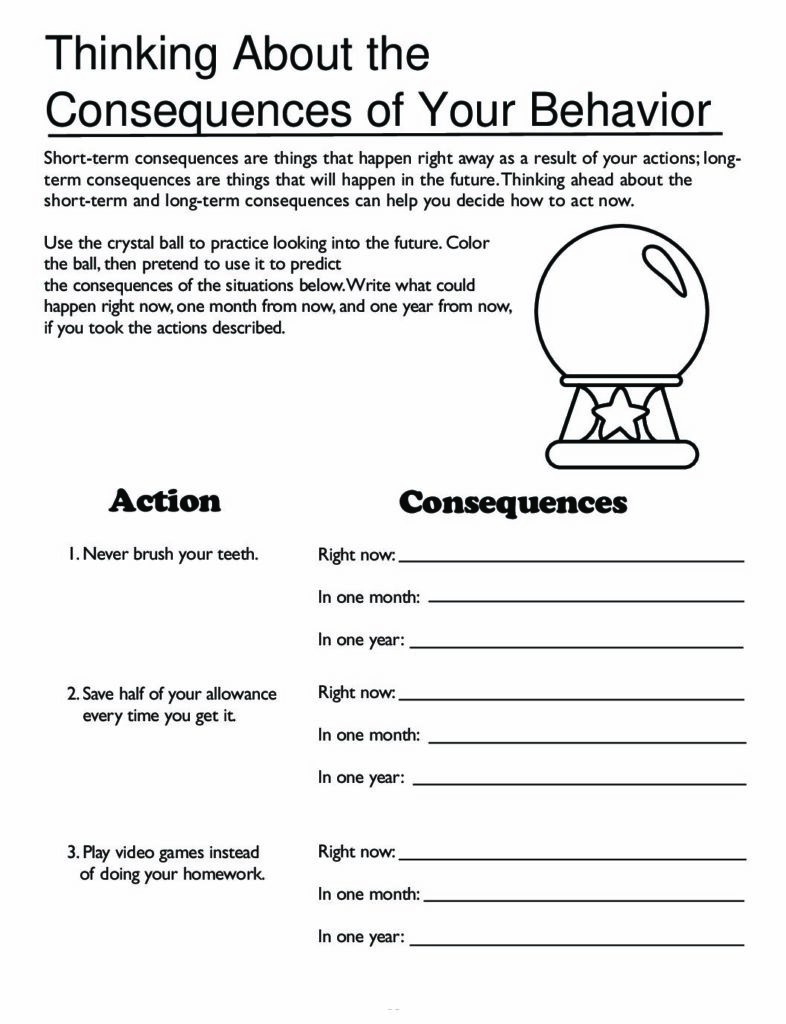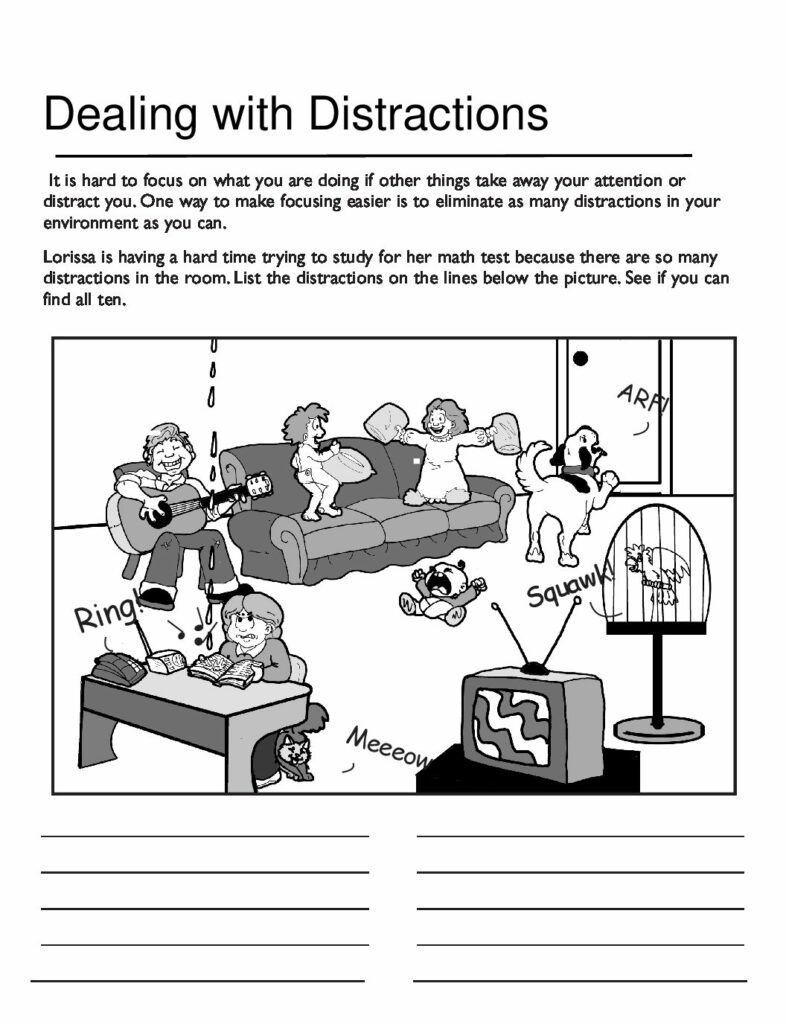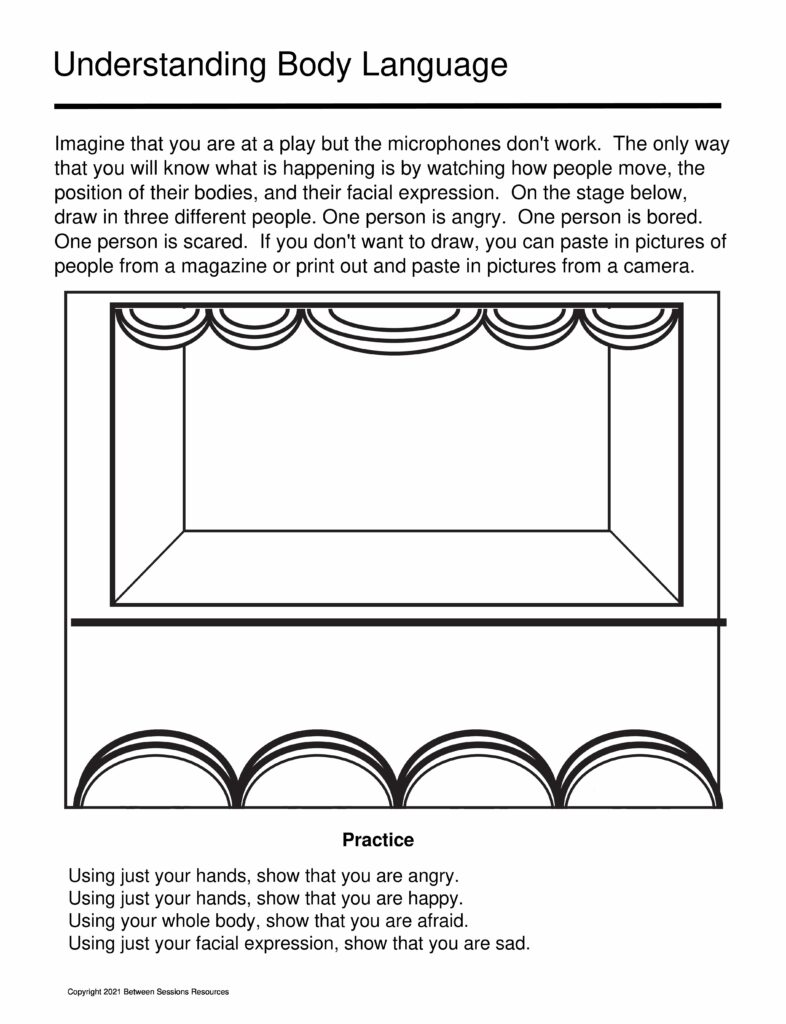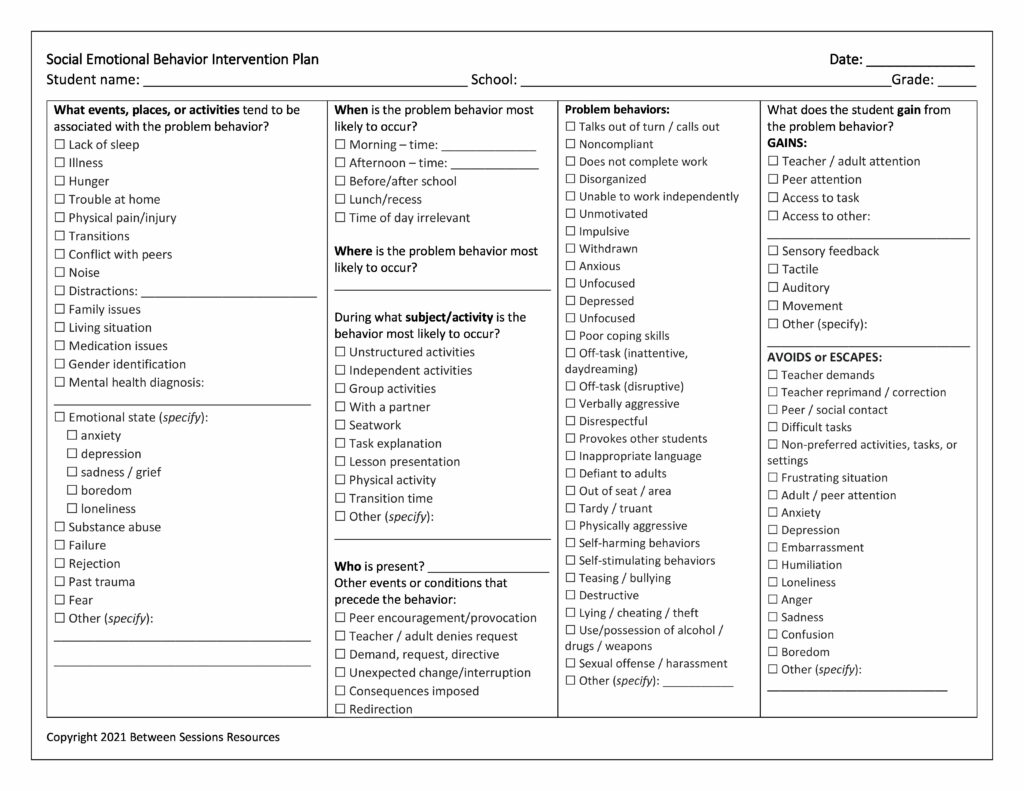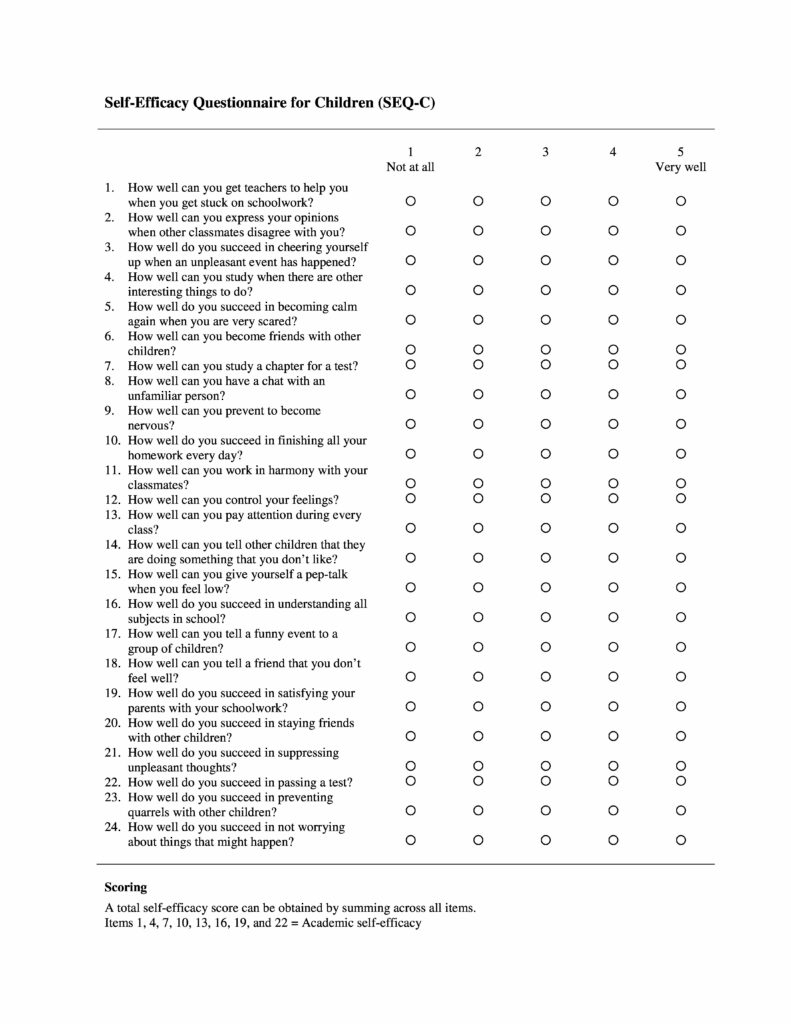This worksheet for children and young teens explains how their body reacts to fear or perceived danger. (0322, fear, phobia, mind-body, anxiety)
This worksheet summarizes 17 key points in becoming a better parent, like: following through, monitoring screen time, asking questions, answering questions, and more. There is a brief description of each tip and a chart for parents to monitor which tips are most helpful. (0122, parenting)
This worksheet is designed to help parents who regularly find themselves yelling and shouting at their children. Yelling is not a form of discipline and in the long run, just pushes children away. There are 11 strategies to try when yelling and shouting is a problem along with questions to help parents gain insight into their behavior. (0122, parenting, behavior problems, family therapy)
This worksheet gives kids an example of a student frustrated at school and asks students to think about what causes them frustration at school and what they can do about it. (ADHD, behavior, frustration, 1021)
This worksheet teaches children about short and long-term consequences of their behavior. (0821, behavior problems, consequences, positive discipline)
This worksheet asks kids to think about distractions and how they can affect their work. (0821, ADD, focus, homework)
This worksheet helps children learn to match different feelings with different facial expressions. (0621. Feelings, emotional communication, empathy)
This worksheet asks children to draw actors on stage expressing emotions without speaking. It is designed to be an introduction to understanding body language. (0521, ADHD, Autism Spectrum Disorder)
This intervention plan can be used to assess different aspects of a student’s problem behaviors and record the responses to different behaviors. A progress monitoring graph is also included. (0421, behavior management, school problems, ADHD)
This 24 Item Scale measures the important trait of self-efficacy in children – the belief that one can accomplish tasks. A high self-efficacy score is associated with resiliency, academic achievement, and the ability to overcome problems. The scale helps you determine an overall score as well as sub-scores in academic, social, and emotional self-efficacy. (self-efficacy, behavior, assessment, parenting, 0421)


